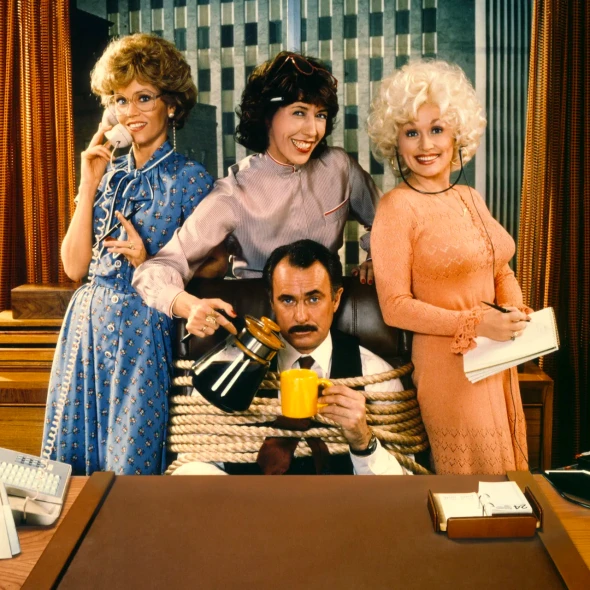
Jason Moore is done debating the comedic merits of the fairer sex. "I can't believe people still have this conversation, but I grew up knowing that women are funny." For the director, "Women are funnier!" he exclaims. "I want to watch these women all the time."
Moore got his start in the theater, earning a Tony Award nomination for directing the Off-Broadway musical Avenue Q, along with productions of Steel Magnolias, Shrek: The Musical, and The Cher Show. His affinity for funny women is on display in his movies: He made his feature debut with the a cappella comedy Pitch Perfect, starring Anna Kendrick and Rebel Wilson. His sophomore feature was the Paula Pell-penned Sisters (2015), reteaming Tina Fey and Amy Poehler on the big screen.
His latest is Shotgun Wedding, starring rom-com veteran Jennifer Lopez as a bride whose destination wedding is crashed by pirates. The starry ensemble comprises a rogues gallery of scene-stealing ladies like D'Arcy Carden, Sônia Braga, Selena Tan, and Jennifer Coolidge. "She gets out there and it seems like nothing's going to come out," Moore says of Coolidge, "and then she does something brilliant."
Below, Moore shares with A.frame five of the films that have inspired his love of movies — and the iconic leading ladies that left the biggest impact on him.
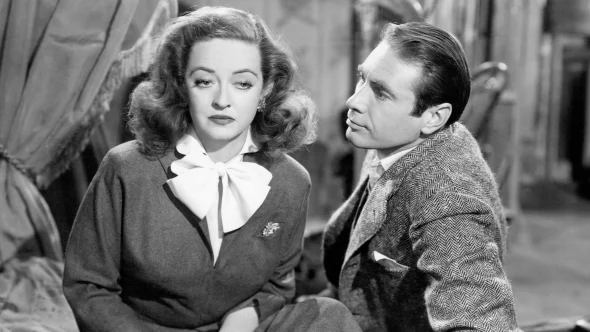
Written and Directed by: Joseph L. Mankiewicz
When I was a kid, All About Eve was the first time I went back and watched a movie and was intrigued. The fact that it was in black and white, the fact that it made me listen to the words. The acting's incredible. The wit is incredible. After that, I very quickly discovered The Women and Philadelphia Story and all these other incredibly written movies. But All About Eve, I encountered first.
Also, I'm a theater guy and it is a story about theater. There was probably part of my 10-year-old self that loved that. It's a movie I've gone back to watch 50 times over the years, and it still holds up. That dialogue and that acting holds up really well, and it's a great story.
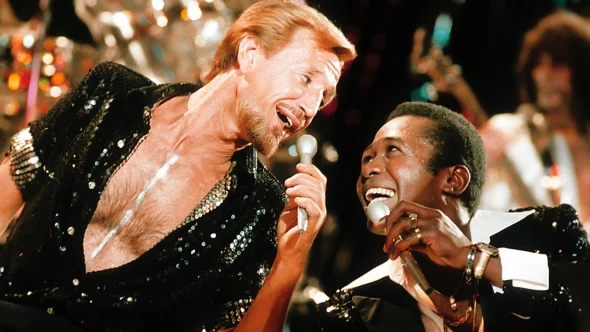
Directed by: Bob Fosse | Written by: Bob Fosse, Robert Alan Arthur
I was nine when All That Jazz came out, and I didn't understand it at all. But I loved it. I grew up in Arkansas, and it was my introduction to Fosse. Seeing how theatrical film can be, that was new to me. It opened up a world of not everything having to be realism or even heightened realism. It can be theatrical and fantastical and include song and dance. It's a masterclass in how you photograph great choreography. And the fact that it was also dramatic and dark, it is a fusion of tone that felt really original. That's a movie I've gone back to watch a lot.
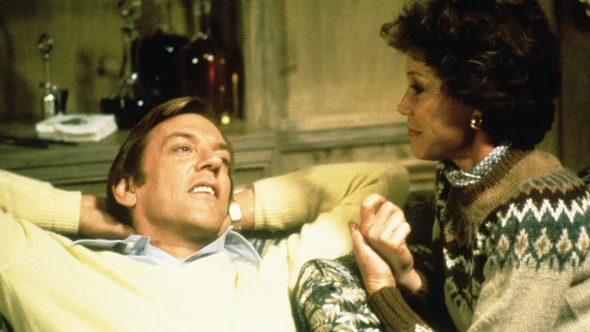
Directed by: Robert Redford | Written by: Alvin Sargent
When I was a kid, Ordinary People was the first R-rated movie I ever convinced my mom to take me to see. It's like the opposite of All That Jazz. It's ultra-realism and every performance is so nuanced and so smart. It's incredible performances from every last person. It was Robert Redford's directorial debut, and obviously, actors know how to talk to actors. At the time, I didn't understand all the dynamics as a 10-year-old. But as I go back and watch it, it's a classic family dynamic, and I think it reminded me that small stories can be on the big screen.
Written and Directed by: Colin Higgins
I've seen that movie 150 times. In fact, I watched it over the pandemic, because I wanted to watch movies that I knew would make me feel good. And when I went back and watched 9 to 5, I had forgotten how big and theatrical it is. There are dream sequences and so many things you don't really see in movies that often. I was really into Lily Tomlin movies, and those movies probably transferred into my love for Tina Fey and Amy Poehler. But 9 to 5 is so funny and so wicked and wild, and it is a comedy that I always thought a lot about as I went on to do comedies.
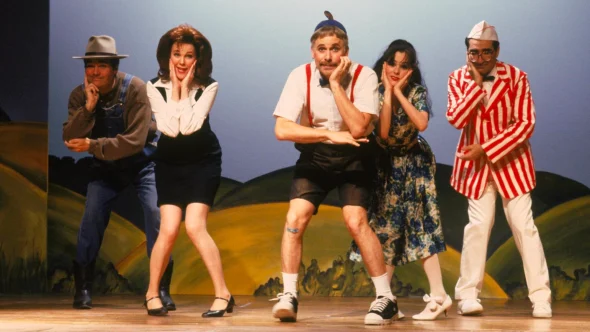
Directed by: Christopher Guest | Written by: Christopher Guest and Eugene Levy
Waiting for Guffman was the first movie where I really started to understand improv and the tone of improv. I'd never seen it before. Of course, Best in Show and all of Christopher Guest's movies went on to illustrate that that was a really funny way to make comedies. That took us all the way to Bridesmaids, and we did a lot of improv in my movie, Sisters. Waiting for Guffman was the introduction and a big influence on the naturalism of improvisation. It was also about a musical, so I guess there's a pattern.

